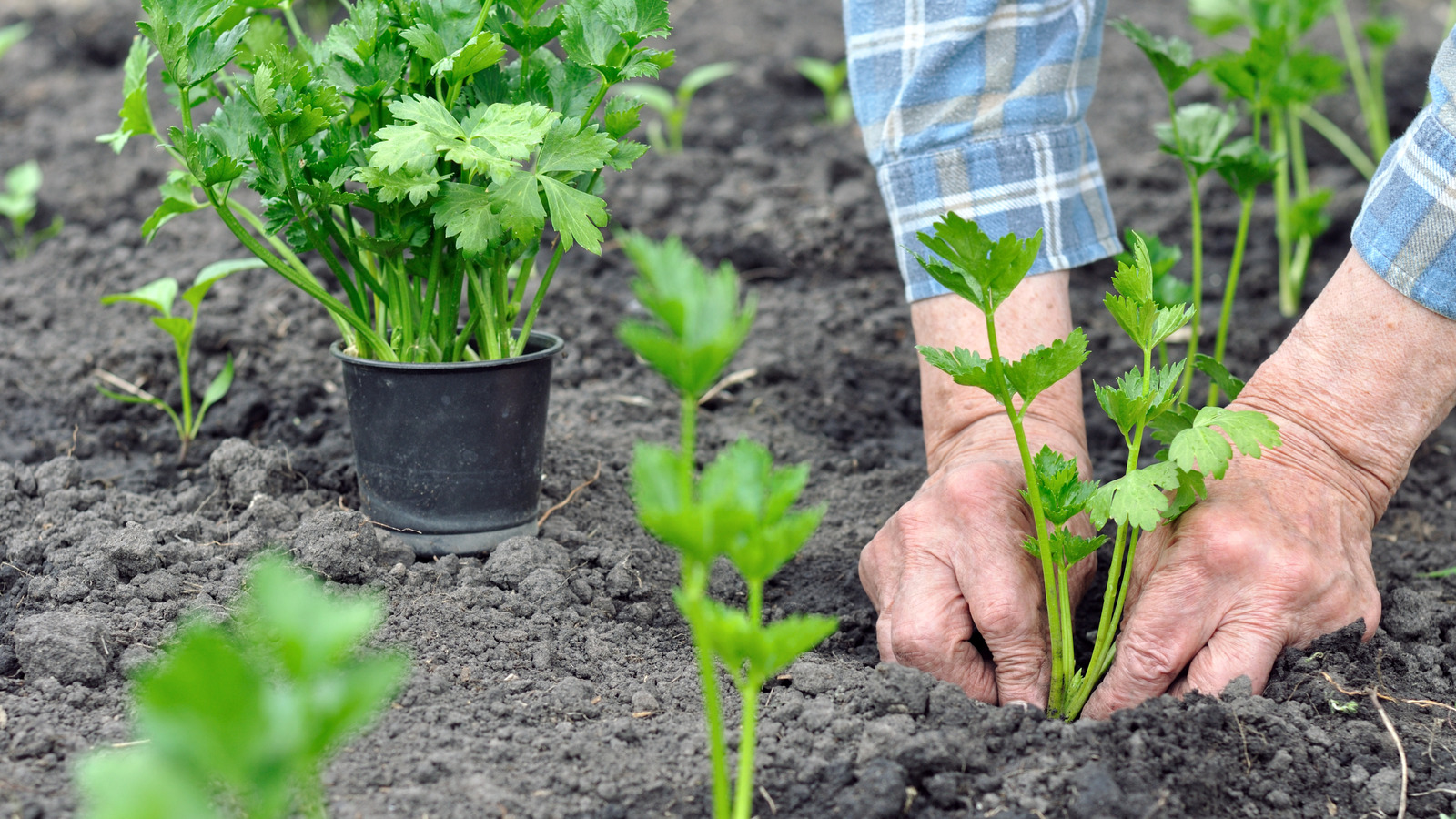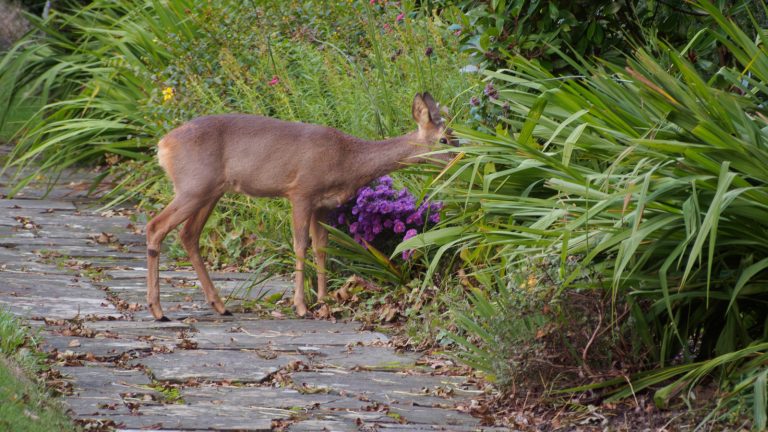
Gardening is a scientific endeavor that requires careful care and planning, especially when it comes to growing vegetables. Growing vegetables from seed can be challenging, as it opens up the possibility of errors and difficulties along the way.
Here are nine vegetable plants that may not be worth growing from seeds. Starting from seeds requires additional steps, and even with techniques to increase germination rates, there can be issues or long waiting periods. Some seeds take a long time to germinate, may not grow as expected, or may not meet the conditions required to produce edible vegetables. Read on to discover which plants are better propagated from tubers, seedlings, or young plants, so you can successfully cultivate them alongside vegetables that are suitable for growing from seed in your garden.
Parsley seeds take almost a month to germinate
When it comes to growing parsley, starting from seeds may not be the most efficient approach. It takes around three weeks for parsley seeds to germinate, and up to two months before they are ready for planting. This means you may have to wait nearly three months before you can begin harvesting parsley leaves. Compared to other herbs and vegetables that are ready for harvest in a month, parsley can lag behind.
Instead of planting seeds, consider purchasing young parsley seedlings from a local nursery and planting them between February and May. These young plants will produce edible leaves throughout the growing season and provide consistent harvests. Parsley grows well in neutral to slightly acidic soil that is rich in nutrients, and it thrives in both indoor and outdoor gardens. Apart from the long germination period, parsley is low maintenance and has minimal sunlight requirements.
Celery seeds take weeks to germinate and even longer to sow for planting
Growing celery from seeds requires patience, as it takes three weeks to germinate and up to three months to sow for planting. This means that while you see the first sprouting stem of parsley, celery seeds may still need more time to show growth. Celery seeds need ample sunlight to germinate, so they should not be buried too deep in the soil. Protecting seeds from birds, animals, and pests can be challenging, especially when grown in an outdoor garden.
To avoid the long wait and potential issues with germination, consider planting starter celery plants directly in your garden plot. Celery is a biennial plant, meaning it only lives for up to two years. Save yourself the hassle of growing seeds each year by planting seedlings in rich soil with high potassium content around April or May. Choose cultivars that are known to grow quickly in home gardens, such as ‘Conquistador’ or ‘Tango Hybrid.’
Asparagus seeds take a minimum of three years to provide harvests
Growing asparagus from seeds can be challenging due to its long germination period (three to five weeks) and the difficulty of determining the plant’s gender. Female asparagus plants may produce fewer edible spears if most of the seeds turn out to be female. It is recommended to transplant one-year-old male asparagus crowns for a more reliable harvest.
When planting asparagus, choose male-dominated cultivars like ‘Jersey Giant’ or ‘Jersey Knight.’ These plants should be placed in deep garden plots with fertile, well-draining soil. Asparagus can live for about 15 years, so selecting the right spot for planting is crucial.
Real wasabi seeds are hard to source and it’s easy to get sold fake ones
Growing genuine wasabi from seeds can be challenging, as they are hard to find and difficult to germinate. Many nurseries do not sell wasabi seeds, and the seeds that are available have strict temperature requirements for germination. It is also common to encounter fake wasabi seeds that are actually mustard seeds bred to taste similar.
Instead of risking the challenges of growing wasabi from seeds, consider ordering authentic wasabi plants from a reliable retailer. Wasabi plants thrive in cool, moist, and shaded environments, requiring specific conditions for successful growth.
Artichoke seeds are not reliable and may not fruit even if they flower
Artichokes are known for being unreliable when grown from seeds. Even if they flower, they may not produce fruit later in the growing season if their vernalization requirements are not met. Artichokes also require ample space and specific temperature conditions for a successful harvest.
To ensure a productive artichoke plant, consider starting with root divisions or starter plants. Varieties like ‘Globe’ artichoke are known for their productivity and can be grown in USDA Zones 6 to 9.
Potato seeds will likely not produce the potatoes you buy at the grocery store
While it is possible to grow potatoes from seeds, they may not produce the same potatoes you find at the grocery store. Potato seeds are not clones of their parent plant and may grow into different varieties. To ensure a successful harvest of potatoes similar to those found in stores, consider growing from “seed potatoes,” which are small tubers identical to their parent plant.
Source your seed potatoes from a local nursery to avoid issues with dormancy and chemical treatments that may delay plant growth. Planting seed potatoes ensures a more predictable outcome in terms of potato variety and quality.
The hotter pepper varieties are, the longer they take to germinate
Hot peppers can take a long time to germinate, with some varieties like ghost pepper requiring up to four months. Hot peppers have strict soil temperature requirements and low germination rates, making them challenging to grow from seeds for casual gardeners.
To avoid uncertain germination times, consider buying hot pepper starter plants or using cuttings from established plants. This ensures you get the exact pepper type you desire without the uncertainty of seed germination.
Eggplant seeds need a particularly warm climate to sprout
Eggplants require warm temperatures to germinate, with a minimum of 70 degrees Fahrenheit needed for successful sprouting. Many gardeners use heated propagators to ensure proper germination conditions for eggplant seeds. Growing eggplants from seeds can be challenging, especially for beginner gardeners.
Opt for a healthy foot-tall eggplant plant to avoid issues with germination. Mulching is recommended to help eggplants retain heat and moisture throughout the growing season.
Rhubarb seeds aren’t harvestable until up to two years after planting
Rhubarb plants grown from seeds can take up to two years before they are ready for harvest. It is important to allow the plants to establish themselves before harvesting, which may take a few years. Consider purchasing mature rhubarb plants for a quicker and more reliable harvest.
Varieties like ‘Victoria,’ ‘MacDonald,’ and ‘Canada Red’ are known for their large yields and are suitable for USDA Zones 3 to 8. Plant rhubarb in rich soil with consistent water and sunlight for best results.






